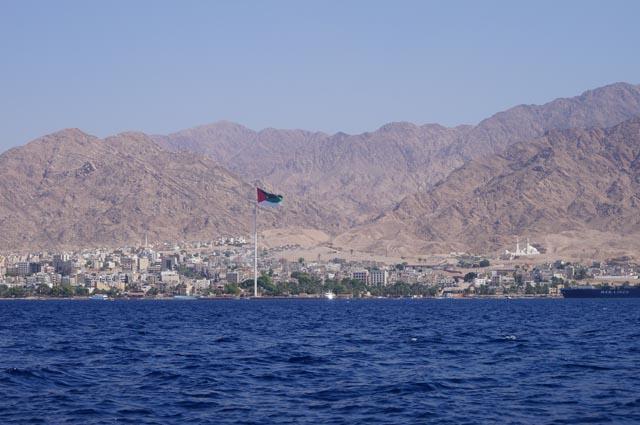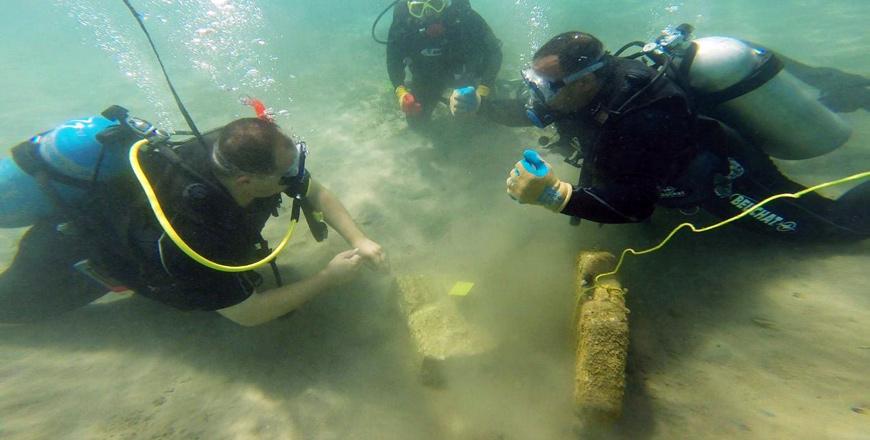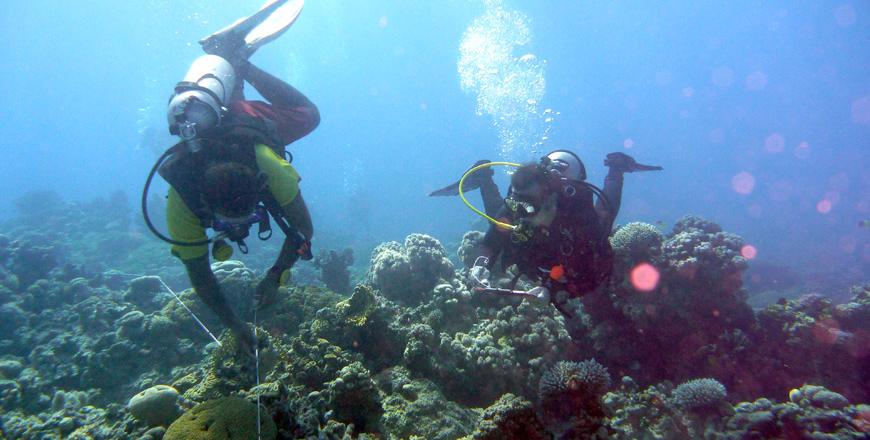You are here
Findings on Aqaba’s old underwater city to be unveiled
By Hana Namrouqa - Feb 21,2018 - Last updated at Feb 21,2018
AMMAN — Findings of Jordan’s first underwater archaeological expedition searching for traces of the early Islamic city of Ayla will be made public next week, a marine conservationist said on Wednesday.
In a conference to be held in Aqaba, the Royal Marine Conservation Society of Jordan (JREDS) and its project partners will announce the expedition’s findings which “are pretty interesting and will set the ground for new prospects for the Gulf of Aqaba’s heritage, nature, environment and culture”, said the society’s executive director, Ihab Eid.
“The project aimed at finding linkages with the historical heritage values of Aqaba’s Islamic city of Ayla,” he highlighted, noting that the excavation started in the summer of last year with hopes to unearth the sunken ruins of the early Islamic city of Ayla.
The early Islamic city of Ayla is the Red Sea’s oldest port and a major archaeological site in Islamic history, the director explained, adding that the project was triggered by old images showing fragments of a wall below the water, which indicated the possibility that part of Ayla was underwater.
Part of the surface ruins of Ayla is currently located northwest of Aqaba city centre, some 330km south of Amman.
Web sources indicate that the city was founded around the year 650 by the Caliph Uthman Ibn Affan. It prospered from 661 to 750 under the Ummayads and beyond under the Abbasids (750-970) and the Fatimids (970-1116), but later declined in the late 12th century due to earthquakes and attacks by bedouins and Crusaders.
The project was implemented by JREDS, in coordination with the Department of Antiquities and in partnership with USAID’s Sustainable Cultural Heritage Through Engagement of Local Communities Project and the American Centre of Oriental Research.
Related Articles
AMMAN — For the first time ever, archaeologists will carry out an underwater excavation in July in the Gulf of Aqaba, hoping to discover the
AMMAN — A sunken marine port structure in the Gulf of Aqaba was unveiled on Monday as findings of Jordan’s first underwater archaeological e
AMMAN — Six women from Aqaba will undergo professional diving training this year to become the port city’s first batch of certified female d





















